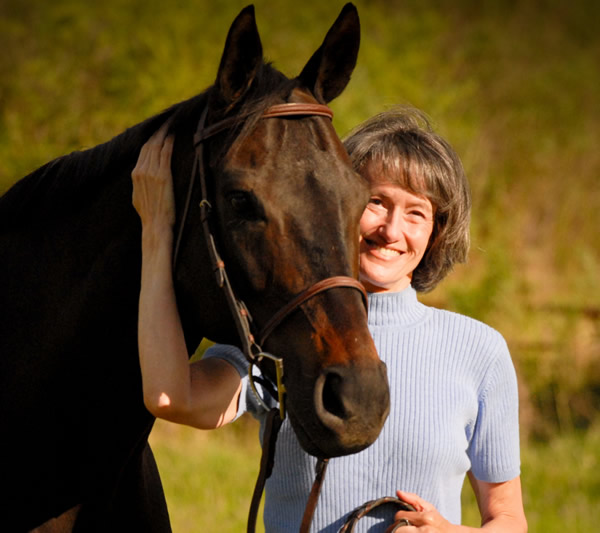TRUE TRAINING 36 - The Value of Time
Time: that annoying measure of life that’s worth its weight in gold! In these blog posts, I often describe brain-based training techniques that proceed slowly. Most people, especially those who pay monthly training bills, want the process to speed up. We forget that the young horse is like a befuddled child plopped down in a foreign country. He doesn’t speak the language, doesn’t know the currency or the culture, hasn’t met the people, has strange sights, sounds, and smells popping out at him from all directions, doesn’t know where the bathrooms are or how to order food, and doesn’t know where to turn for help. As a prey animal, it’s only natural for him to be scared.
Fear impairs learning in both horses and humans. The equine brain can be overwhelmed very easily by excess neural activity in the area that mediates fear. In fact, one of the many differences between equine and human brains is that the equine prey brain is hard-wired to flee immediately from environmental risk. In other words, a horse has a brain that dictates flight—it does not allow the animal to stand still and investigate unless he is taught to do so. Human brains, on the other hand, are hard-wired with two different connections between the perception of an event and the feeling of fear. We have the option of running away immediately OR waiting to see if flight is necessary. Untrained human brains offer a choice; untrained equine brains do not.
A horse’s fear of the “foreign country” cannot be overcome quickly. It takes daily interaction and consistent positive lessons for the young horse to learn the ropes and figure out who he can trust. Time spent in kind, knowledgeable, daily experience builds bonds of deep trust between a horse and handler. One important feature of brain-based training is that we must teach appropriate behavior rather than expecting a horse to figure it out by magic.
Extra time spent in the early phase of your interaction with a given horse saves time later. So, go slowly during the first few months. Let the horse get to know you, get used to your habits and actions. As time passes and he learns your expectations, he will be able to proceed more quickly. Horses who get this slow careful tutoring from the start experience fewer setbacks later. They tend to learn steadily rather than in fits and starts. Many horses learn like gangbusters for the first three months—but a year or two later, somebody has to go back and fix a bunch of underlying mistakes that weren’t apparent in the beginning.
It's true that not everyone has unlimited time to teach horses how to behave. Even professional trainers have to keep an eye on the clock if they are to maintain a living income by buying green or unstarted horses and selling them at a level of early-phase performance. Try to compromise, though. Give your horse—especially your young horse—extra time in the beginning. It’s bound to pay off in the long run, and you’ll learn so much from the horse that you would have missed otherwise.

